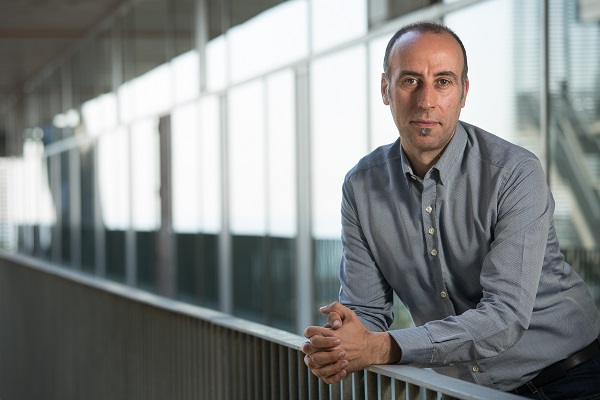"The research we do at DCEXS is increasingly multidisciplinary"
20 years ago this year saw the creation of the Department of Experimental and Health Sciences (DCEXS) at Pompeu Fabra University. On the occasion of this anniversary, we speak with its current director, David Comas, about the creation and growth of the department.

On the occasion of the 20th anniversary of the Department of Experimental and Health Sciences, we speak with its director, David Comas, head of the Human Genome Diversity Laboratory.
- How did DCEXS come about?
The department was set up as the result of an initiative led by Jordi Camí, who is the current PRBB director. He started recruiting people from the health and life sciences, an area that up to that point had not existed at the UPF. The DCEXS was set up at the same time as the faculty. Initially, the first studies were in human biology, after which we began incorporating the other Bachelor's and Master's degrees.
- How would you sum up these 20 years of the DCEXS? What achievements have been made?
The first important milestone was the creation of the department in a university that had no experience in the field of biomedical sciences. The incorporation of new studies and new research groups was also a great achievement. On the other hand, we were previously housed in what is now the teaching building, and the move to the PRBB was a substantial change. I should also point out the organisational change effected through the creation of scientific programmes, and the fact we pioneered researcher and programme evaluation in the state university system. Finally, I think that getting the María de Maeztu award consolidated all the good work done through the years.
- How has the DCEXS adapted to changes in the experimental sciences and the educational trends that have taken place over this time?
The Department has always tried to find new lines of research and, at the same time, consolidate existing ones. For example, the development of the Bioengineering Systems programme was a proposal to adapt to areas we did not have here, but which we knew were relevant in our field. At a strategic level, it is more difficult to define specific lines of research because the work we do is increasingly multidisciplinary. We have always wanted to excel at teaching. The results of our students' studies and training is very important to us and, in fact, we have received many teaching innovation awards over the years.
"Getting the María de Maeztu award consolidated all the good work done through the years"
- What do you think the department’s particular strengths or differential features are?
At DCEXS, teaching is just as important as research - this is one of our distinctive features. Interaction and collaboration is another of our strengths, as we try to promote and encourage initiatives and projects that allow researchers to interact, not only within the DCEXS, but also with other groups at the university and in other institutions.
"We try to promote and encourage initiatives and projects that allow researchers to interact"
- What does the PRBB bring to the DCEXS?
The PRBB context is essential because it has allowed us to interact, to have a critical mass of people to collaborate with or simply exchange ideas with. Another very positive aspect is the core facilities shared between the different centres. The Park also serves as a reference, as together we are a pole of attraction in the field of biomedicine in southern Europe; this fact increases our visibility and benefits all the PRBB centres.
